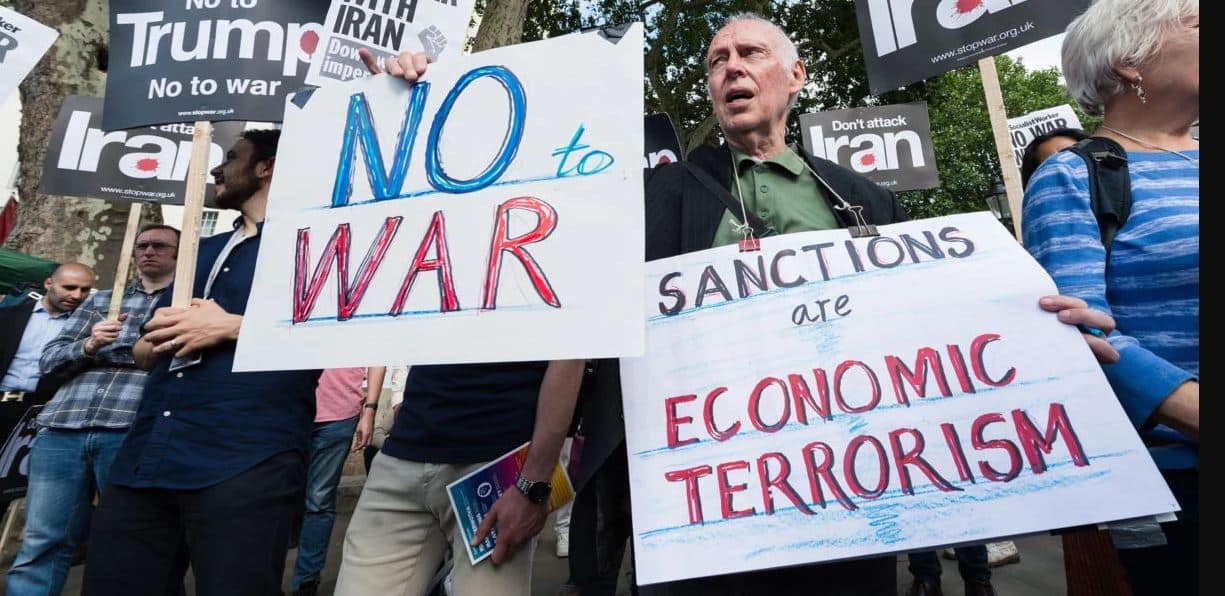Joe Biden’s administration keeps boasting about how successful international sanctions have been in punishing Russia for invading Ukraine. But that boast is increasingly hollow, both with respect to the extent of international unityand the success of the sanctions. Instead of being a success story, the U.S.-led sanctions campaign against Russia is fast becoming another example of a chronically failed tactic.
The administration’s propaganda about widespread global support relies primarily on 2 resolutions condemning the invasion that the UN General Assembly approved, one in March 2022 and the other in February 2023. However, both resolutions were purely symbolic, toothless measures. They did not commit member states to take any action. Nevertheless, more than one-fifth of the UN members, including such key players as China, South Africa, and India, defied Washington’s pressure and cast negative votes or abstentions.
A more graphic and substantive indication of the unwillingness of countries not already in Washington’s geopolitical orbit to join the crusade against Moscow is their refusal to impose economic sanctions. Except for the NATO bloc and long-standing U.S. security dependents in East Asia, the global mapis nearly devoid of countries that have adopted punitive measures. Such absence of support throughout the Middle East, Africa, and Latin America is especially striking.
Western sanctions have damaged Russia’s economy, but they have been decidedly less effective than Washington’s boasts would imply. After a brief, sharp decline, the Ruble has become one of the stronger currencies internationally, making a mockery of President Biden’s prediction that it would soon become “the rubble.” Russia also remains a key export power in terms of both energy and food. Indeed, the Kremlin has been markedly successful in shifting its exports from European markets to those in other regions. Most notably, it has replaced Saudi Arabia as China’s largest sourceof oil and natural gas. Collaboration on that issue is just one sign of an emerging bilateral alliance between the Asian giants – a development that gives US military planners nightmares.
The faltering of the U.S.-led strategy of economic sanctions against Russia should not come as a surprise. Similar campaigns have a long track record of being an ineffective foreign policy tool. North Korea has not capitulated to Washington’s demands despite massive economic pressure since the middle of the twentieth century. US sanctions against Cuba, now in their seventh decade, and against Iran, now in their fifth decade, have produced similar frustrations for US policymakers.
The seminal scholarly work of Gary Hufbauer, Jeffrey Schott, and Kimberly Ann Elliott, Economic Sanctions Reconsidered, documented how sanctions rarely achieved their policy goals. More recent editions of the book confirm the conclusion with even greater certainty. Sanctions inconvenience the targeted regime – and create substantial suffering for innocent people in that country – but they seldom compel the regime to capitulate or even make major concessions. As Hufbauer, Schott, and Elliott demonstrate, that outcome is especially true when the issue at stake is a high-priority matter for the country’s political leadership.
The habitual ineffectiveness of sanctions is reason enough to reject such a policy option, but their pervasive cruelty should be an even more compelling reason. Unfortunately, US and other Western officials seem oblivious or callous about that problem. The ongoing sanctions against Russia have undoubtedly injured tourist shop owners in Saint Petersburg, where cruise ships now are barred from stopping. Yet how driving a middle-age seller of nesting dolls into bankruptcy is supposed to compel Vladimir Putin to cease his war against Ukraine remains a mystery.
Undoubtedly the most shocking example of insensitivity about the collateral damage that economic sanctions inflict was a comment that Madeleine Albright made in the mid-1990s. CBS 60 Minutes reporter Lesley Stahl cited accounts that the U.S.-led international sanctions against Iraq, still in effect years after the Persian Gulf War, had cost the lives of 500,000 Iraqi children. When asked if the policy had been worth such a price, Albright responded: “I think this is a very hard choice, but the price–we think the price is worth it.” It was a stunningly callous comment, but there is little evidence that Albright’s successors in either Republican or Democratic administrations have adopted a more enlightened attitude.
Continuing to impose economic sanctions that inflict suffering on innocent civilians is a policy unworthy of a decent country. The United States and NATO need to abandon that course with respect to Russia and the other targets of Washington’s wrath.
Reprinted with permission from Antiwar.com.


